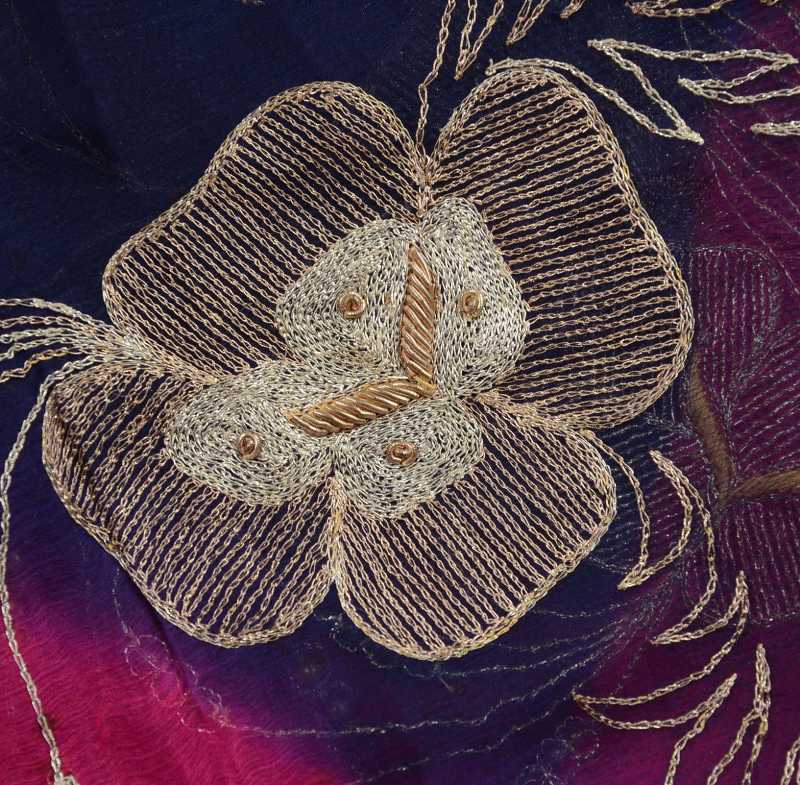===
0313,
7
===

=== |
 |
jī : 'Life, soul, self, spirit, mind; heart; courage; disposition; affection, regard; strength, health'. (Platts p.411)
hār : 'A necklace, a string (of pearls, &c.); a garland or chaplet (of flowers); a wreath'. (Platts p.1215)
gale kā hār : 'A garland for the neck; a necklace; —(fig.) a child who constantly clings to his mother; a clog, an encumbrance; an importunate person; —a short woman married to a tall man'. (Platts p.912)
gale kā hār honā : 'To be or become as a necklace (to), to hang round the neck (of a person)'. (Platts p.1215)
hārnā : 'To be defeated, be worsted, be overcome, be unsuccessful; to lose (in play, or in battle, &c.); to fail; —to be fatigued, or tired out; to become dispirited; —to become old or feeble'. (Platts p.1215)
FWP:
SETS == DOUBLE ACTIVATION
MOTIFS
NAMES
TERMS == IDIOM; METAPHORTo SRF's explication of the idiomatic sense of gale kā hār honā I would like to add one more aspect of the wordplay: the sense of hārnā as 'to be defeated/exhausted' (see the definition above). Thus it's possible to read the hār in the second line as a colloquially shortened form of hār kar , which yields the second reading (2b) of the second line. By no coincidence, this reading too works elegantly with the first line: 'I'm so worn down and exhausted by the torments of loving you that I've surrendered, I've given up-- here, you take my life, as a garland of victory!'. Thus in the second line the word hār is a case of what I call 'double activation'.
Walt Hakala points out (Mar. 2015) that instead of jī there could easily be jay , in the sense of 'winning, being victorious; conquest, victory, triumph; advancement, preferment, promotion' (Platts p.411), and that this would go well with both the garland and the use of hār (though not, except in a wordplay sense, with the idea that the speaker has been 'defeated'). Of course, such a reading would require a spelling change, which would need to be documented. As far as I can see, it's not documented. So perhaps we can call that reading a kind of phantom, an enjoyable bit of hovering almost-wordplay. The idea that the wretched lover might actually win some kind of 'victory' is unusual, but after all not unheard-of, in the ghazal world. Just to complicate things further, Walt also calls our attention to another idiom: jī hārnā means 'to lose heart, to become faint-hearted, be spiritless, be discouraged or depressed (from fear)' (Platts p.412).